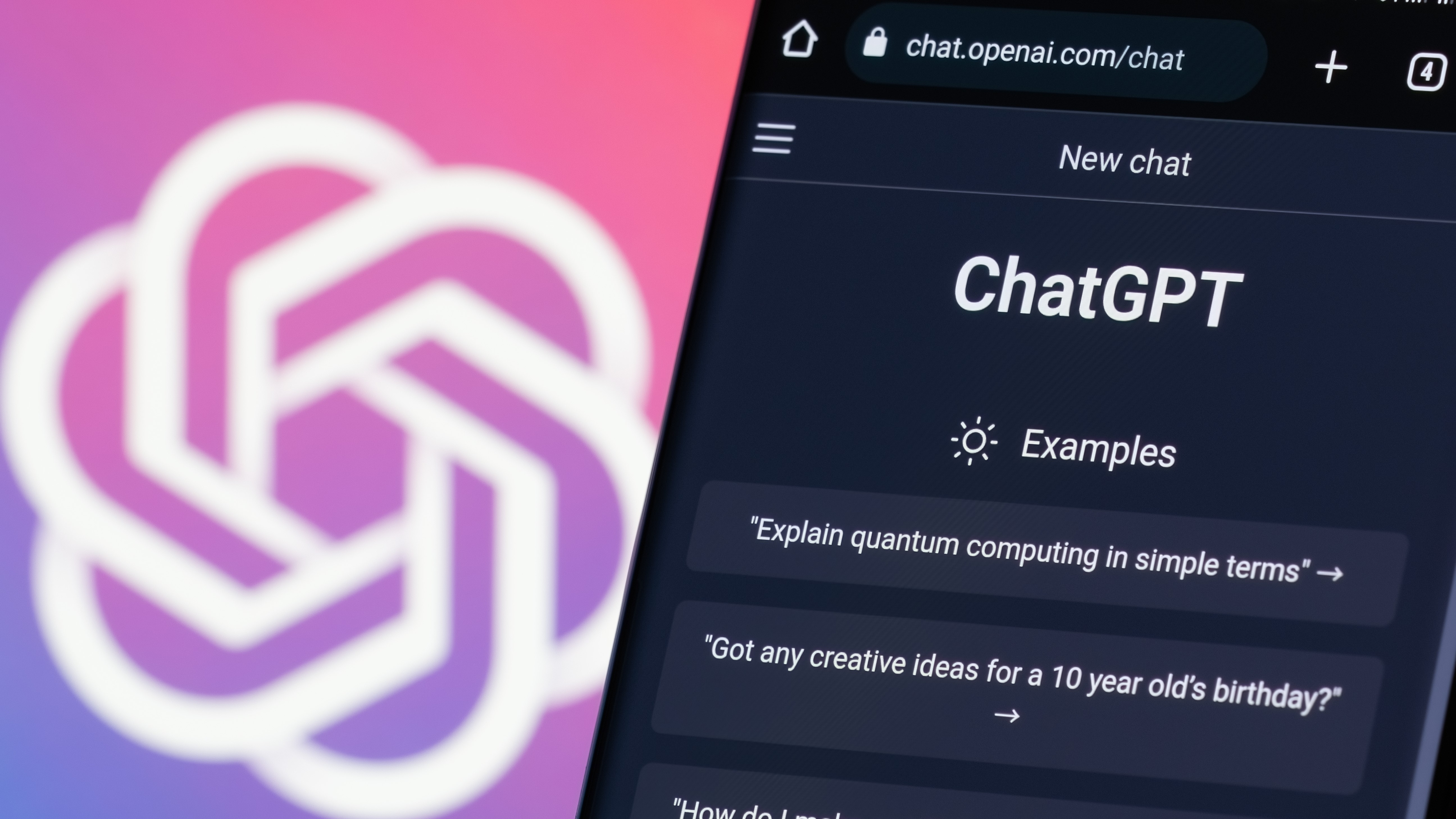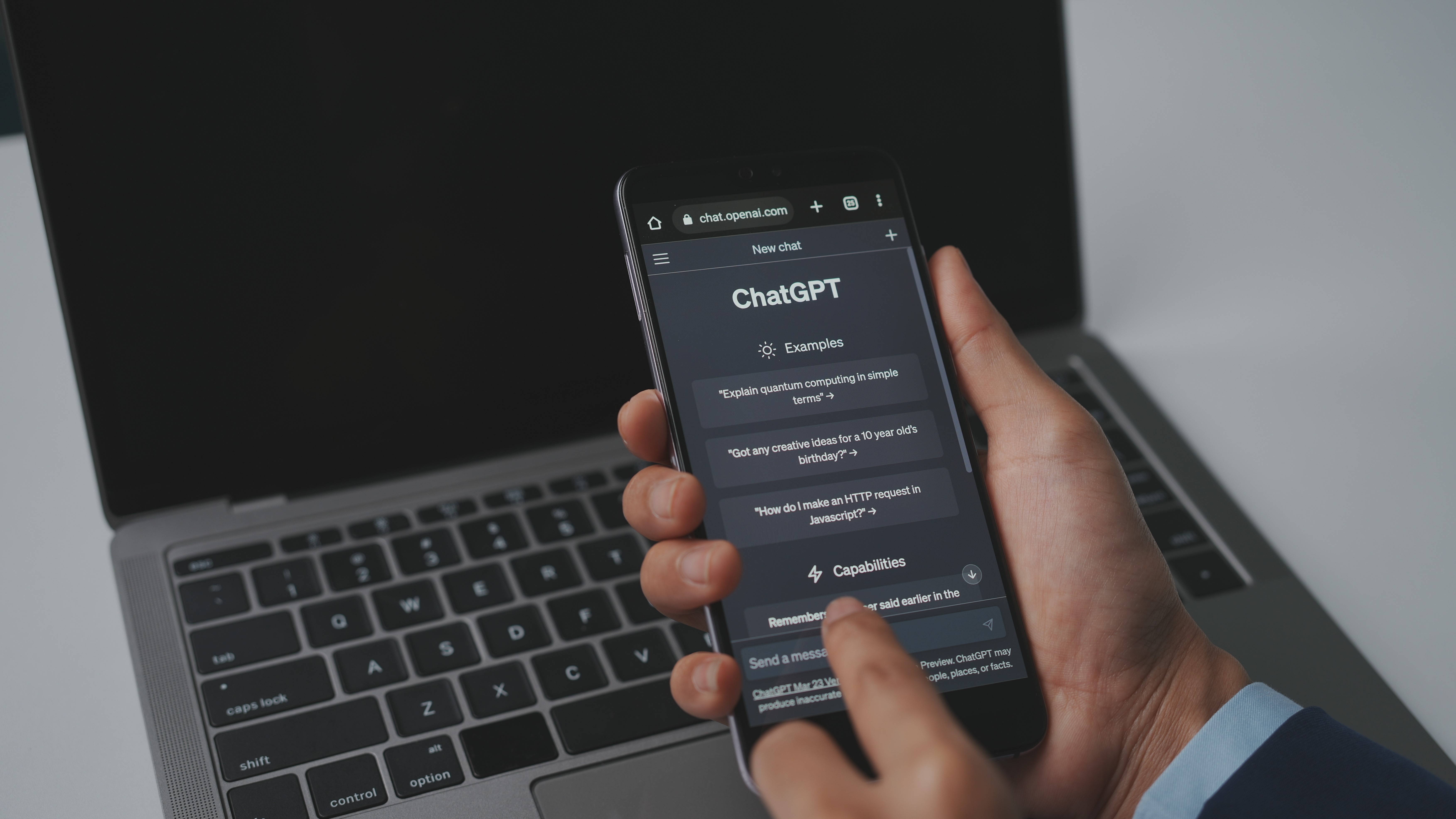ChatGPT just took a big step towards becoming the next Google with its new account-free version
ChatGPT 3.5: chat freely, now with no strings attached

Sign up for breaking news, reviews, opinion, top tech deals, and more.
You are now subscribed
Your newsletter sign-up was successful
The most widely available (and free) version of ChatGPT, ChatGPT-3.5, is being made available to use without having to create and log into a personal account. That means you can have conversations with the AI chatbot without it being tied to personal details like your email. However, OpenAI, the tech organization behind ChatGPT, limits what users can do without registering for an account. For example, unregistered users will be limited in the kinds of questions they can ask and in their access to advanced features.
This means there are still some benefits to making and using a ChatGPT account, especially if you’re a regular user. OpenAI writes in an official blog post that this change is intended to make it easy for people to try out ChatGPT and get a taste of what modern AI can do, without going through the sign-up process.
In its announcement post on April 1, 2024, OpenAI explained that it’s rolling out the change gradually, so if you want to try it for yourself and can’t yet, don’t panic. When speaking to PCMag, an OpenAI spokesperson explained that this change is in the spirit of OpenAI’s overall mission to make it easier for people “to experience ChatGPT and the benefits of AI.”

To create an OpenAI account or not to create an OpenAI account
If you don’t want your entries into the AI chatbot to be tied to the details you would have to disclose when setting up an account, such as your birthday, phone number, and email address, then this is a great development. That said, lots of people create dummy accounts to be able to use apps and web services, so I don’t think it’s that hard to circumvent, but you’d have to have multiple emails and phone numbers to ‘burn’ for this purpose.
OpenAI does have a disclaimer that states that it is storing your inputs to potentially use to improve ChatGPT by default whether you’re signed in or not, which I suspected was the case. It also states that you can turn this off via ChatGPT’s settings, and this can be done whether you have an account or not.
If you do choose to make an account, you get some useful benefits, including being able to see your previous conversations with the chatbot, link others to specific conversations you’ve had, make use of the newly-introduced voice conversational features, custom instructions, and the ability to upgrade to ChatGPT Plus, the premium subscription tier of ChatGPT which allows users to use GPT-4 (its latest large language learning (LLM) model).
If you decide not to create an account and forgo these features, you can expect to see the same chat interface that users with accounts use. OpenAI will also be putting in additional content safeguards for users who aren’t logged in, detailing that it’s put in measures to block prompts and generated responses in more categories and topics. Its announcement post didn’t include any examples of the types of topics or categories that will get this treatment, however.
Sign up for breaking news, reviews, opinion, top tech deals, and more.

An invitation to users, a power play to rivals?
I think this is an interesting change that will possibly tempt more people to try ChatGPT, and when they try it for the first time, it can seem pretty impressive. It allows OpenAI to give users a glimpse of its capabilities, which I imagine will convince some people to make accounts and access its additional features.
This will continue expanding ChatGPT’s user pool that may choose to go on and become ChatGPT Plus paid subscribers. Perhaps this is a strategy that will pay off for OpenAI, and it might institute a sort of pass-it-down approach through the tiers as it introduces new generations of its models.
This easier user accessibility could mean the type of user growth that could see OpenAI become as commonplace as Google products in the near future. One of Google Search’s appeals, for example, is that you could just fire up your browser and make a query in an instant. It’s a user-centric way of doing things, and if OpenAI can do something similar by making it that easy to use ChatGPT, then things could get seriously interesting.
YOU MIGHT ALSO LIKE...
Kristina is a UK-based Computing Writer, and is interested in all things computing, software, tech, mathematics and science. Previously, she has written articles about popular culture, economics, and miscellaneous other topics.
She has a personal interest in the history of mathematics, science, and technology; in particular, she closely follows AI and philosophically-motivated discussions.